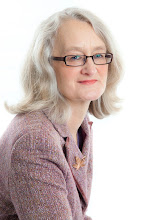A new piece of research has been published today by the Stockholm Environment Institute entitled "Older People and Climate Change- the Case for Better Engagement". As part of the report it categorises older people into the 3 Cs, Contributors, Campaigners and Casualities of climate change.
I haven't gone into the research in great detail but the report states that the baby boomer generations, as the first real consumer generation, have the highest carbon footprint. The current oldest generation have lower carbon footprint and when they die off (literally) they will be replaced by what the report calls the " replacement effect" ie the highest carbon footprint contributors will move into the oldest age.
While I can see that this would be a problem and a cause for concern the thing that struck me most about the report was the fact that the "culprits" had been segmented based on their age. My question is that surely it is chosen (or enforced) lifestyle that determines the carbon footprint? All age groups can be divided into the 3 Cs and that the approach taken is too simplistic and too general. The key aspect is to target and change behaviour of those whose life styles do the most damage to the environment, whatever their age.
I do believe that engagement is a key component of change, as the report suggests, and that effective social marketing is required to change behaviours but this requires a more sophisticated segmentation approach. I don't think the focus on age will prove effective in triggering the change required.
If we are going to categorise this by age then key factors often associated with getting older people engaged involve finding meaning, leaving a meaningful legacy and involvement with younger generations. A positive approach could be to engender inter-generational perspective and pressure. Younger people are very effective in teaching their grandparents, for example, how to use new technologies, maybe they can help with the environment too?
Thursday, 26 August 2010
Tuesday, 24 August 2010
Olderpreneurs
23% of people starting a business are over the age of 55 and the term "olderpreneur" has been coined to describe them. Many are being forced into this option due to redundancy however there are some positive benefits of this key life change, not least the liberation of being able to make your own decisions.Luke Johnson, Chairman of the Royal College of Arts said last year that "Sustainable self employment can offer financial and social fulfilment. Not only can working for yourself bring material rewards, it is a great way to meet people and stay in touch with people from all generations- as customers, partners, suppliers or perhaps staff".
The case for older people continuing work in some form or other is also backed up by PRIME's Chief Executive Laurie South who states that "research shows that cross-generational companies seem to do better".
Working is not just about generating income but about social connectedness with other generations. Maybe if more and more people of us have to continue working as we get older we will have the added benefit of lower levels of social isolation and better inter-generational understanding.
The case for older people continuing work in some form or other is also backed up by PRIME's Chief Executive Laurie South who states that "research shows that cross-generational companies seem to do better".
Working is not just about generating income but about social connectedness with other generations. Maybe if more and more people of us have to continue working as we get older we will have the added benefit of lower levels of social isolation and better inter-generational understanding.
Subscribe to:
Posts (Atom)
